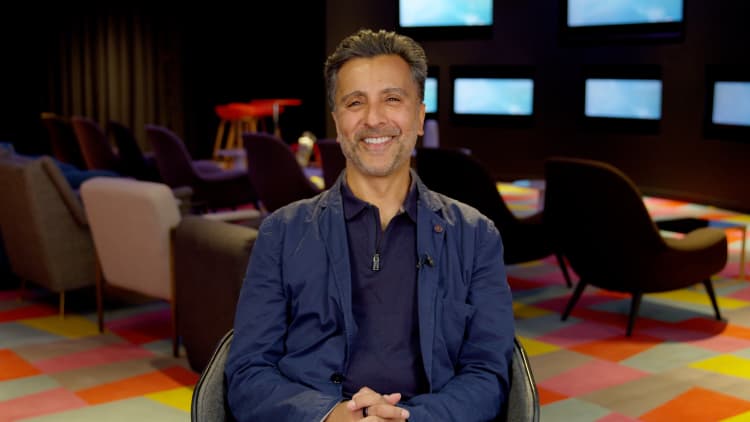How to perfectly time your new omicron-specific Covid booster
If you’re not among the 7.6 million Americans who have already received the updated omicron-specific Covid booster, you may still be debating a key question: When should I get it?
Experts say most people should get the new booster as soon as possible — especially before the late fall and winter months, when cases are expected to spike. Last year, cases began to rise in November as cold, dry weather made it easier for the virus to spread. They rose sharply by the end of the year, reaching a peak in mid-January.
The immunization protection increases slowly over two or three weeks after the injection: if you receive your vaccination on October 1st, you can probably expect the defenses to be fully activated by the middle or end of the month. This protection usually lasts about three or four months before wearing off.
This is useful knowledge – but still, there is no perfect single date for booking your refresher appointment. It depends on when you last received a Covid vaccine, how recently you contracted Covid and whether you are at high risk of serious illness from the virus.
Here’s what you need to know:
If you have not had a Covid infection or vaccination in the last few months
If you’re a healthy, everyday American who hasn’t recently had Covid or received an older version of the vaccine, says White House Covid response coordinator Dr. Ashish Jha that you should set a deadline of Halloween for your new refresher.
“Why Halloween? Because three weeks after Halloween it’s Thanksgiving and there’s a lot of travel and you’re seeing family and friends — and a few weeks later it’s the holidays,” Jha told the In the Bubble with Andy Slavitt podcast earlier this month.
Pfizer’s reformulated shot is approved for ages 12 and older. The new recording of Moderna is suitable for people aged 18 and over.
If you feel any side effects from the new booster shot, they will likely be familiar – similar to your previous experience with Covid vaccines. Consider setting aside the day after your refresher appointment to stay home and rest in case side effects hit you hard.
You might aim to schedule your appointment on a Friday or Saturday and schedule at least one weekend appointment for recovery if you’re concerned about missing work.
It is safe to get your flu shot at the same time as your Covid booster shot. But if you can afford to wait, experts recommend just getting your booster shot first — and waiting for your flu shot in late October or early November.
If you have had Covid within the last three months
CDC advisors say you should consider waiting three months after a negative test before getting your new booster.
Studies have shown that waiting a few months after an infection to get a vaccine can lead to a stronger immune response to a vaccine, the CDC website says. People who have recently become infected also have a lower risk of infection, the agency adds.
If you have received a Covid vaccine within the last two months
According to the CDC, to be eligible for the new shots, you must have completed your primary immunization series and be at least two months away from your last Covid vaccine dose. This includes older versions of the Covid booster shot: if you were just boosted in September, you will have to wait until November for your new booster shot.
The two-month window ensures you make the most of the protection you already have from your previous dose, and increases your chances of protecting against serious illness and hospitalizations well into winter.
If you are elderly, immunocompromised or otherwise at high risk of severe Covid
